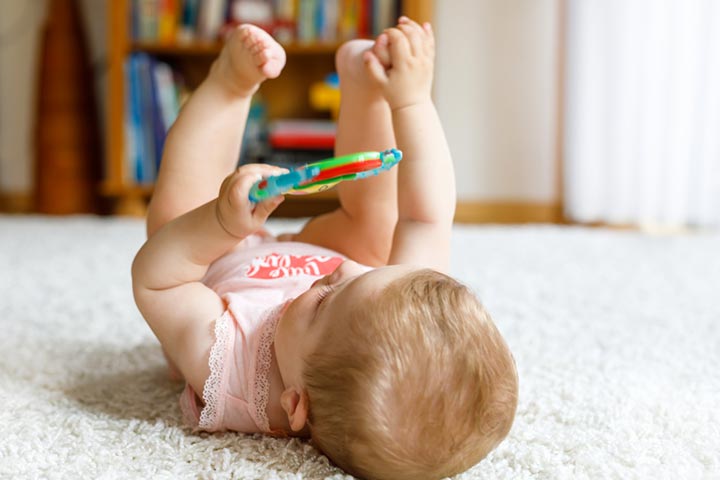
Image: Shutterstock
Having a newborn at home can be overwhelming and exciting. The first couple of months are crucial. Parents feel the need to monitor their baby every second of the day and we don’t blame them. But as time goes by they aren’t just looking out for the baby, they are looking for signs of certain developmental milestones that their baby should exhibit. However, these milestones are not fixed or absolute. Take a 3 month old for example, some may reach typical milestones earlier than their peers while others skip what people consider important milestones altogether. So it’s best to look at your 3 month old as a whole developing person rather than an individual who needs to exhibit skills that need to be developed within a timeframe. That being said, there are some developmental skills that parents should be on the lookout for. These small milestones signify your baby’s growth and health. Here are the milestones that really matter:
1. Baby Should Be More Social
Image: Shutterstock
It’s time for your baby to bloom into a social butterfly. Even if your little one was slow to smile during the second month, they should be able to smile in response to play and activities by the third month. Look out for the ability to change facial expressions, including a little bit of babble. They are not going to say their first word anytime soon but look out for the different sounds they make. The question is not “What can they say?” but “Are they trying to communicate with you?” Their babble may be subtle or pronounced but it will definitely be sloberry so keep some tissues at hand! Try to coax them to laugh while you play with them. However, a 3 month old may also start crying when playtime is over. But take it in stride. This too is a sign that your baby is developing properly. Babies might need a little nudge from their parents so don’t hesitate to be expressive and make funny faces at your baby.
Make sure you give your baby space and enough room to give off social responses if they are hesitant to do so even when coaxed. Keep in mind that there is a difference between a baby who is slow to show response or hesitant to do so amongst people and a baby who cannot respond to any social interaction. Don’t jump to conclusions, sometimes, babies who stare at their parents and don’t coo or smile at them are just showing interest and attention in a different, quieter way. They want to take their time to respond. But if your baby is completely disinterested and doesn’t seem present while you are trying to interact with them, it may be a sign for several neurological disorders. It’s best to bring this behavior to the attention of your pediatrician.
2. Baby Should Start Reaching For And Grabbing At Things
Image: Shutterstock
This is the stage where your baby should take a keen interest to play. Your baby should be able to reach out and grab things that they are curious about. They need to be able to hold onto objects and interact with them. This may look simplistic and primitive to you but every time your baby picks up a toy and boop’s it with their nose or just waves it around, it’s proof that things are falling into place in terms of physical development. It is a sign that they can track objects and coordinate their limbs. If your baby repeatedly kicks or throws around a toy that makes sounds, they are showing you that they have increased muscle strength and that they can respond to auditory cues. For a 3 month old, that’s pretty impressive!
The problem arises when babies cannot grab stuff or reach for things as this may indicate that they have neurological issues (1). Your baby should take an interest in different objects and noises. Take care to notice if your baby’s muscles appear to be too tense or if their muscles and limbs are floppy. An inability to lift their head during tummy time in the next few weeks should all be brought to the attention of your pediatrician.
Keeping track of a million milestones is only going to leave you feeling frustrated and exhausted. Instead of overwhelming yourself and the baby by worrying every second, focus on the milestones that really matter. These little details are all you need to look out for and encourage while your baby is 3 months old. Have fun with your little one while you keep an eye out for them. After all, this time with your newborn is precious, so savor it instead of ticking boxes off of a milestone checklist. And remember that all babies are different and develop at their own pace. So it’s okay if your baby skips a couple of milestones altogether. The important thing is to keep yourself and your baby happy and healthy. Happy parenting!















